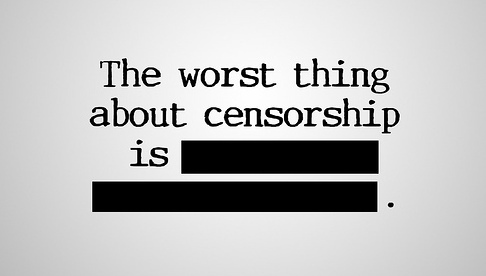I sat down this morning with the intention of writing an article about an excellent report written by two former news reporters turned academics at the University of Central Lancashire, Dr Amy Binns and Sophie Arnold. They have put forward in their report some suggestions for new guidance on how court cases involving trans identified defendants are reported.
As a former court reporter who has covered the London courts, I have an interest in how court cases are reported and understand that there are moral, ethical and legal considerations that need to be taken into consideration when reporters cover court cases. Some examples of these considerations would be, on the ethical side, not publishing the address of a female defendant at a magistrates court who is up for a very minor shoplifting offence where that defendant is residing in a women’s refuge. Such addresses should not be reported as publicising such an address would not only endanger the defendant herself but also other women sheltering in this refuge. On the legal side there are issues such as Contempt of Court to be navigated and issues around the naming of those bringing allegations of rape or sexual assault and the Children and Young Persons Acts that forbid, unless the court allows, the identification of defendants who are considered as minors.
A more recent problem for court reporters has been the proliferation of trans identified defendants in the criminal courts. There has been pushback from news consumers when reporters only use the ‘preferred pronoun’ of the defendant as people quite rightly objected to the dishonesty of lines in news articles such as ‘she exposed her penis’. It is the type of language that looks dishonest, because women do not have penises and because only the defendant’s preferred name and pronouns are used in articles may, as Dr Binns and Ms Arnold point out, may not be sufficient information to encourage other alleged victims of the defendant to come forward. This is especially worrying when there are trans identified defendants on trial for or who have been convicted of sexual offences. Publication of all the names used by such criminals or alleged criminals can encourage other alleged victims to come forward with their allegations.
There have long been suspicions, not just among gender critical feminists but also by those such as myself who have an interest in how our media report criminal court cases involving trans identified defendants. It’s a particular worry that sex offenders especially are taking on trans identification to evade detection by presenting as ‘female’ or to ensure that they get more lenient sentences if they are caught and come to trial. The case of Peter Selby of Tyneside who was caught with a collection of 125k images showing some of the most appalling examples of abuse and deviancy, is a good example of the latter. Selby was given a suspended sentence partly on the grounds that he identified as transgender and that is status would be difficult to manage in prison. In effect Selby walked and will be ‘managed in the community’.
The report by Dr Binns and Ms Arnold was something that desperately needed to be written and distributed to court reporters, so that they could understand the implications of only reporting preferred pronouns and names and so that they could report accurately what they had seen and heard in the court. Unfortunately the authorities at the University of Central Lancashire appeared to think otherwise.
When I went back this morning to look at the report by Dr Binns and Ms Arnold on the University of Central Lancashire website it was missing. I used a direct link to the report that I had saved for later when I first read the report. A further search on the University of Central Lancashire website turned up nothing about this report and no reference to it when the search terms ‘ trans defendants’ and ‘court reporting’ were used.
It appears to me to be quite probable that the University of Central Lancashire has taken down the report by Dr Binns and Ms Arnold. I would assume, based on previous examples of the removal or hiding of academic and media reports that are unhelpful to the proponents of the cult of trans, that the University of Central Lancashire has been leaned on by trans activists and because of such pressure has removed the article.
If that is the case and I suspect that it is, as I cannot see anything that could be questionable about either the methodology of the report or the conclusions then this is likely to be a staggering act of unnecessary censorship. It means that a report by academics, who have extensive knowledge of the field of journalism, has been censored because of complaints by trans extremists and because of the fear of what these trans extremists might do.
I hope that the University of Central Lancashire sees sense and restores this report to their website but in the meantime I’m pleased to see that someone has archived this report. You can access the archive of this report by following the link below.
This piece is well worth reading as it is highly relevant to how court cases are reported and how the use of self ID in courts with regards pronouns and gender status to minimise punishment or obscure the records of defendants, which is probably why the votaries of the Cult of Trans want it hidden. Please distribute this archived report as widely as possible in order to defeat the censorship that appears to being carried out in this case.






Thanks for the link, Josh, though I would have preferred the authors to substitute the word ‘reporter’ for ‘journalist’.
Too much journalism generally, I feel, and not enough reporting – if you catch my drift!
You make a good point there. Court reporters mostly report what is seen and heard in front of them and cannot, until the case has concluded, make comments.
Yes, but I am trying to look at precedents outside the highly emotive trans issues. I.e. how usual is it for a university department to campaign from uncommisioned research to promote a political view? The political view in this case is Gender Critical, a valid starting point but open to debate and we have to accept consequences from opposing views. What annoys me here somewhat is that the practioners are presenting their opinions as valid journalistic guidelines to be observed as opposed to recommendations to be discussed? It seems a slippery slope, could we not get a set of guidelines next week from trans academics with a rather different viewpoint?
I don’t believe that the academics are promoting a political view just making suggestions as to how trans identified defendants could be reported in such as way as it ensures accuracy whilst also making sure that the public are informed that the person in the dock also has another name that they may have used in connection to offences in the past.
Yes, but this report has not just made suggestions, they have set themselves up as a set of guidelines to be followed whilst ignoring any input from trans people themselves. The othering of a minority without representation always has repercussions in our so called democratic societies?
The academics have looked the current situation and formulated guidelines. The guidelines that the academics have formulated are a good starting point for debate. The trans activists are upset about it as they believer that there should be no debate about trans issues when in reality it is pretty contentious.
I do feel somewhat sorry for the normal keep the head down and get on with life transsexuals (such as an ex GF of mine). It is they who are going to face the backlash that is coming and which should primarily be aimed at the trans activists and the sort of worrying types who want to promote gender ideology to children and not at the bog standard transsexual.
Yes but the academics were not asked to do this research, it was completely off their own backs which part of the questioning is about.
Good. There’s some research that should be done by independently minded academics. Sometimes independent thinkers following their own interests are what make academia great. I can well imagine that had this research been run past the Uni authorities prior to being carried out then it’s quite likely that it woudl have been quashed in order to ‘not give offence’ to those with paper thin skins. This is what happened to an academic who wanted to study the phenomena of detransition. See https://www.theguardian.com/education/2017/sep/25/bath-spa-university-transgender-gender-reassignment-reversal-research
BTW one of my wife’s more distant relatives was a pioneer in cancer research and from what I can gather he did much of his research off his own back. We might not have such effective radiotherapy today if it were not for his work. HNot bad for a bloke whose family fled Tsarist pogroms in the 19th century.
This is how academia works, it’s a harsh world. If some researchers get called out for racism, homophobia, or anything, the dispute is ultimately between them and their employers. I fail to see why something should become a public concern at any point with opinions added from people with no direct involvement or experience around the issue?
Academics should be allowed to research into anything that grabs their attention and could have societal or industrial usefulness. They should not be stopped doing that even if some of the research is called ‘phobic’ or whatever. Sometimes research needs to be done even if some people do call it ‘offensive’.
This business of trans defendants in cases to demand that their chosen pronoun or identity are the only ones used does have a lot of public implications and therefore requires public comment. Consider this: Imagine (you don’t have to as there are a lot of them see link) that there is a trans identified male up in court for a string of CSE or other serious offences and there is the possibility that this offender will have more victims to his name than the police have managed to find. If the offender or defendant is only reported in the press as the name and ID that they have demanded that is used, then how on earth can these extra victims come forward if the person’s real not chosen name is not used? These extra victims might only know the offender in their true rather than trans identity.
Addendum: Sorry. Forgot link. Here it is https://transcrimeuk.com/